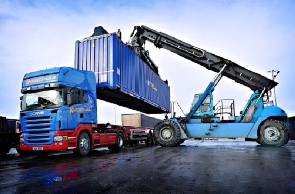One saying dey wey tok say, wen America sneeze, di rest of di world go catch cold. But wetin go happun if China no well?
China na di world second-largest economy, wey be home to more dan 1.4 billion pipo, dey face plenty problems – wey include slow growth, high youth unemployment and property market wey dey for inside mess.
Now, dem don place di kontri real estate developer chairman, Evergrande wey dey owe plenty debt under police investigation.
And dem don also suspend di company shares on di stock market.
While these add to di major issues wey dey give Beijing headache, how dis take mata to di rest of di world?
Analysts believe say pipo worry say dis mata go affect di whole world, na just overhype.
But multinational corporations, dia workers plus even pipo wey no get direct links to China go likely feel some of di effects. Ultimately, e go depend on who you be.
Winners and losers
"For example, if Chinese pipo no too dey order food for lunch again, e go affect di global economy?" Deborah Elms, executive director of Asian Trade Centre for Singapore ask.
"E fit no affect plenty pipo but e go affect firms wey directly dey rely on domestic Chinese consumption."
Hundreds of big global companies like Apple, Volkswagen and Burberry dey get most of dia revenue from China plenty consumer market and go dey hit if households begin dey spend less.
Na dat time, thousands of suppliers and workers around di world wey dey rely on dis companies go feel am more.
Wen you check am and see say China dey responsible for more dan one third of di growth pipo dey see for di world, anybody beyond dia borders go feel some kind pain if dia economy go down.
However, according to some economists, di idea say China na di engine of global prosperity na exaggeration.
"Mathematically, yes, China dey account for around 40% of global growth," George Magnus, one economist for di University of Oxfors China Centre tok.
"But who dat growth dey benefit? China dey run one huge trade surplus. E dey export pass wetin e dey import, so how much China grow or no grow dey more about China pass di rest of di world."
"E go worse more for big exporters like Australia, Brazil and several oda kontris for Africa," Roland Rajah, director of Indo-Pacific Development Centre for di Lowy Institute for Sydney tok.
Over di last 10 years, China dey estimated to don invest more dan one trillion dollars inside huge infrastructure projects like Belt and Road Initiative.
More dan 150 kontris don receive Chinese money and technology to build roads, airports, seaports and bridges. According to Oga Rajah, Chinese commitment to these projects fit begin suffer if dem no resolve di economic problems for di kontri.
"Now Chinese firms and banks no go get plenty money dem go take dey do business for overseas," e tok.
China for di world
While e dey possible say Chinese go reduce dia abroad investment, e neva dey clear how else China domestic economic situation wan take affect dia foreign policy.
A more vulnerable China, some argue, fit begin try repair dia damaged relations wit di US.
American trade restrictions don partly contribute to 25% drop for Chinese exports go di US for di first half of dis year, while US Trade Secretary Gina Raimondo recently tok say di kontri dey "uninvestable" for some American firms – wey mean say some America kontris no go fit invest for China.
At di same time, one batch of US and EU officials don continue to travel go China every month to continue dia discussion on bilateral trade.
Di truth na say na few pipo really know wetin dey between Chinese rhetoric and Chinese policy.
Expect di unexpected
"China property market no dey linked to dia financial infrastructure for di same way wey American subprime mortgages bin dey. Besides, China financial system no dey strong enough to cause direct global impact like wetin happun for di United States for 2008," Elms tok.
"We dey globally interconnected, wen one of your big engines of growth no dey function, e go affect di rest of us, and most time e dey affect di rest of us for ways we no fit imafine."
"Dis no mean say I dey think say wetin happun for 2008 go repeat itself, but di point na say wetin sometimes appear to be local, domestic concerns fit get effect on all of us.. Even in ways wey we no fit imagine."
BBC Pidgin of Saturday, 30 September 2023
Source: BBC
















